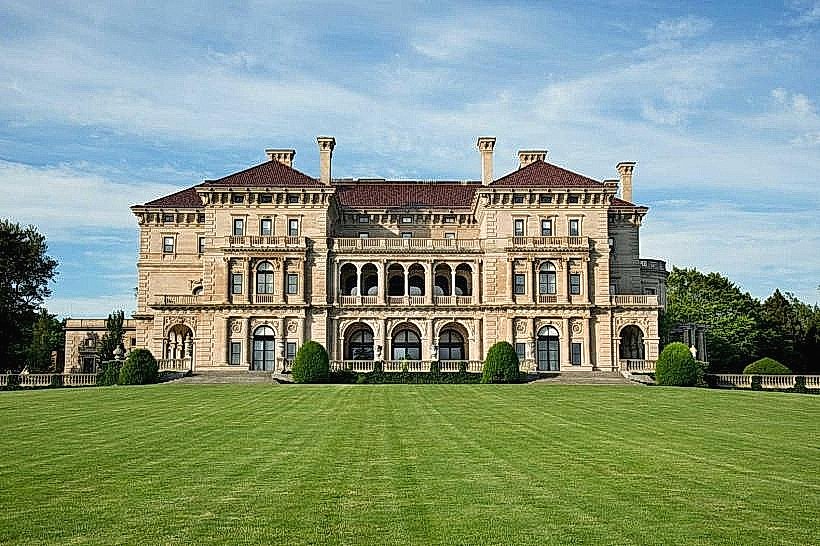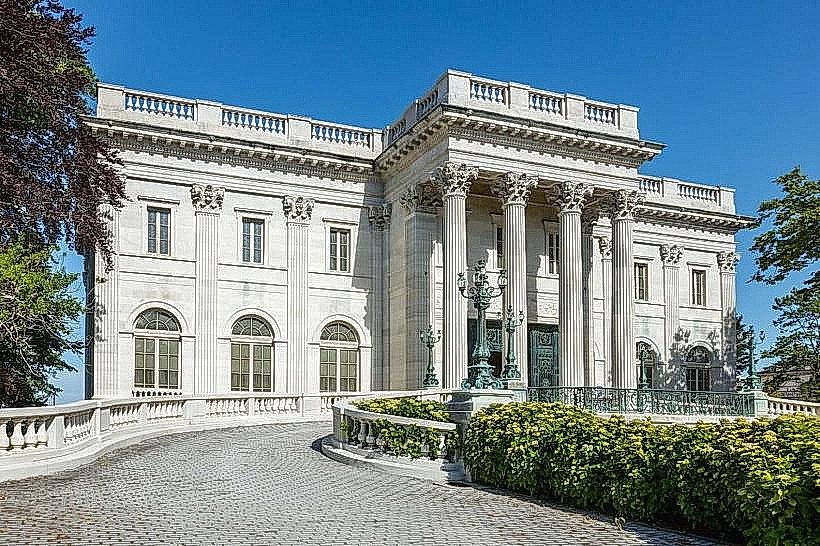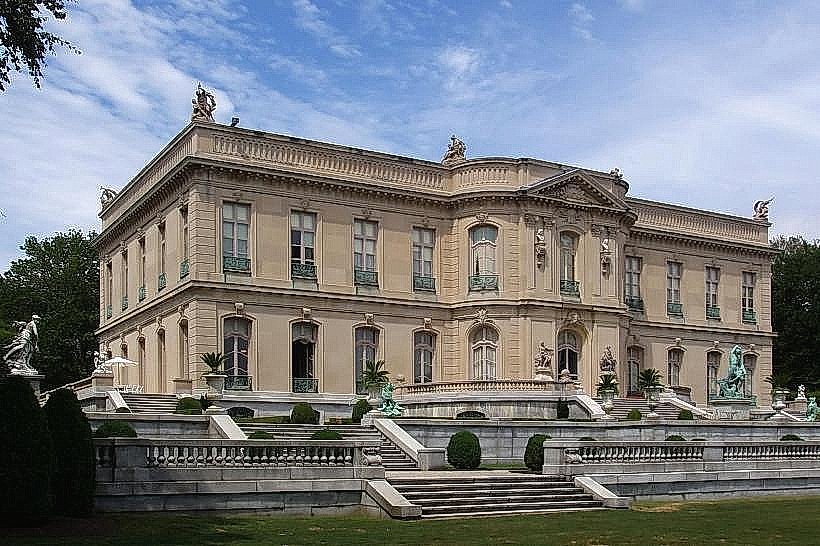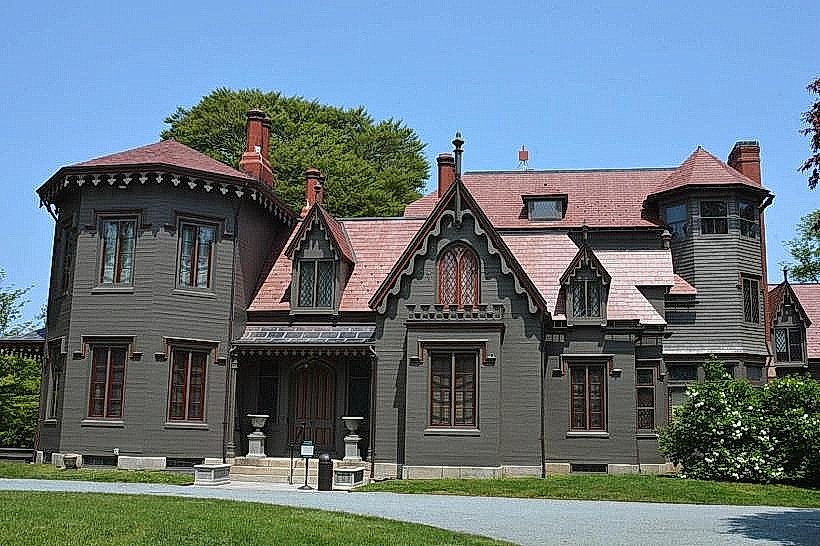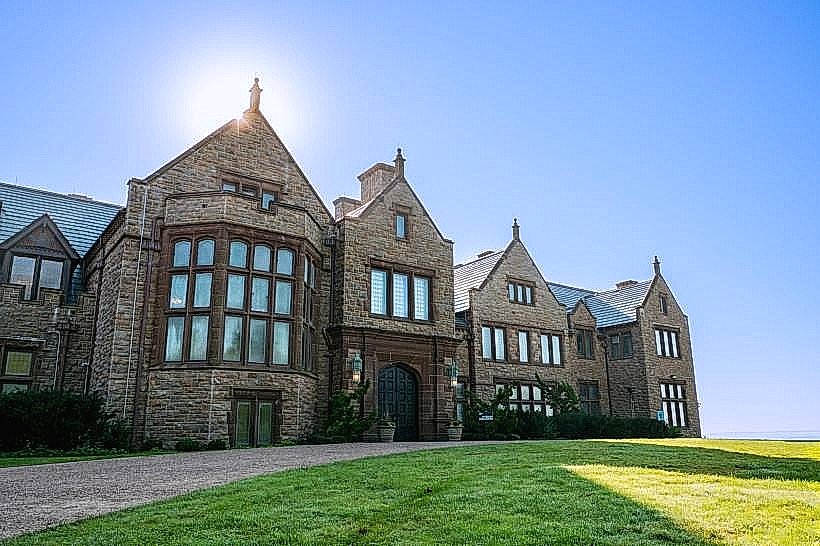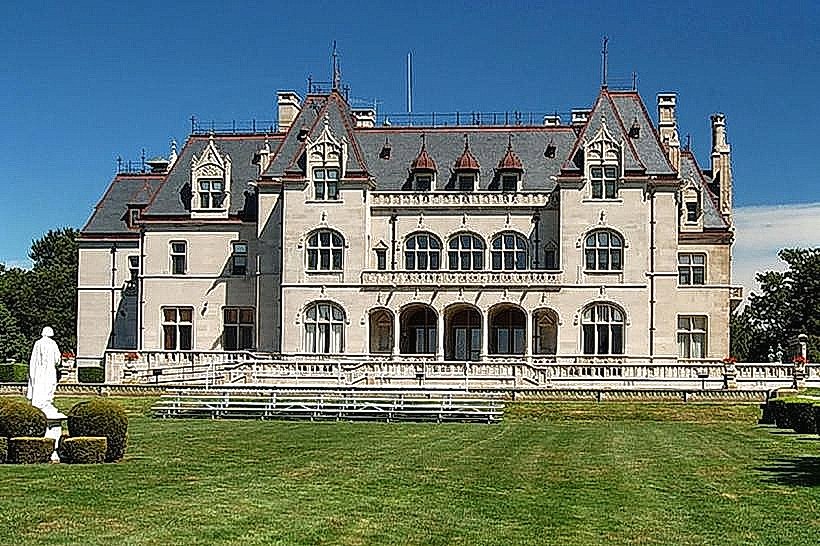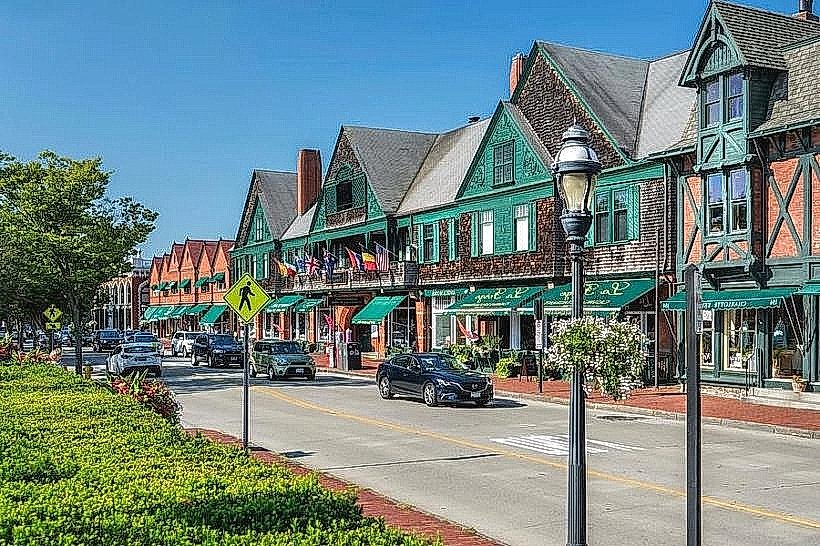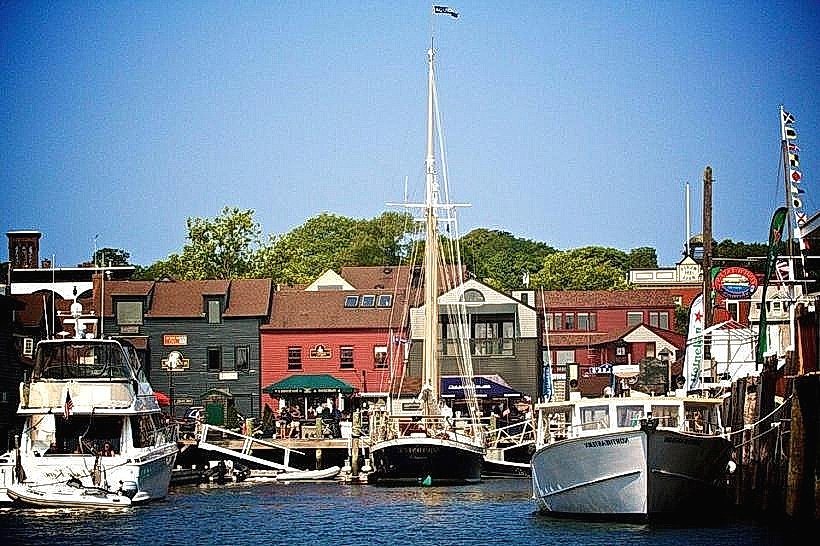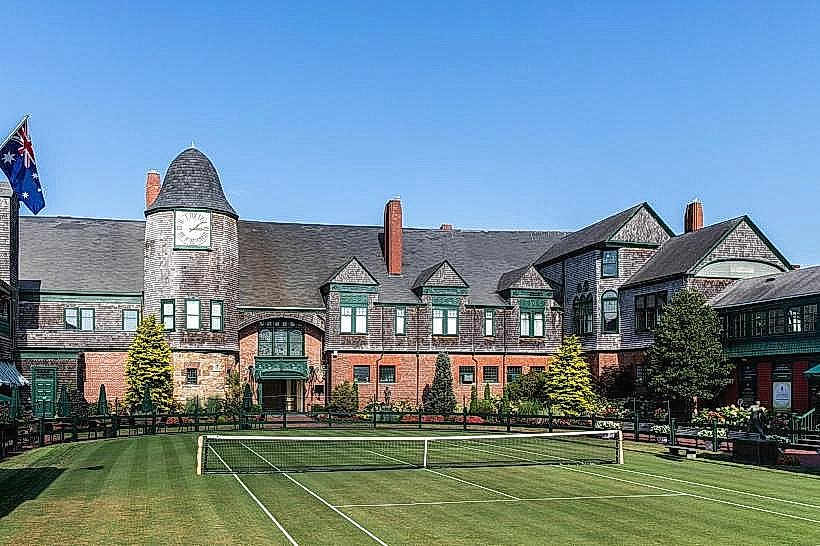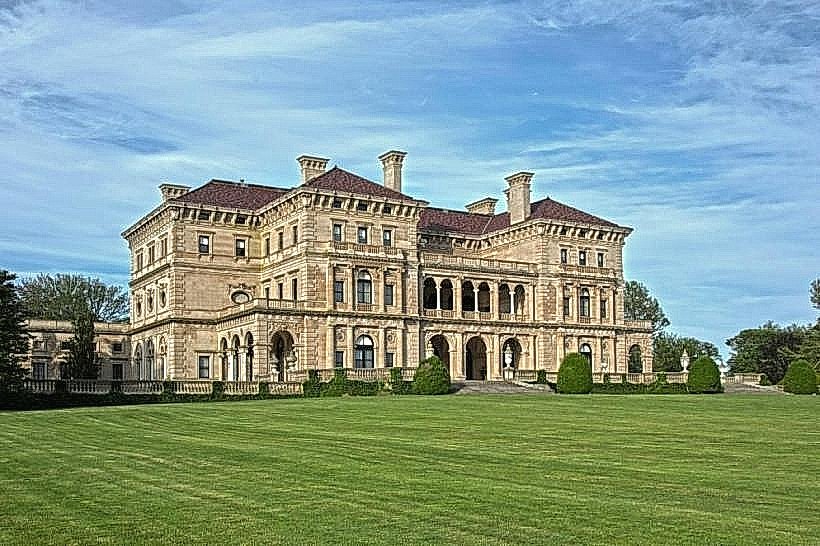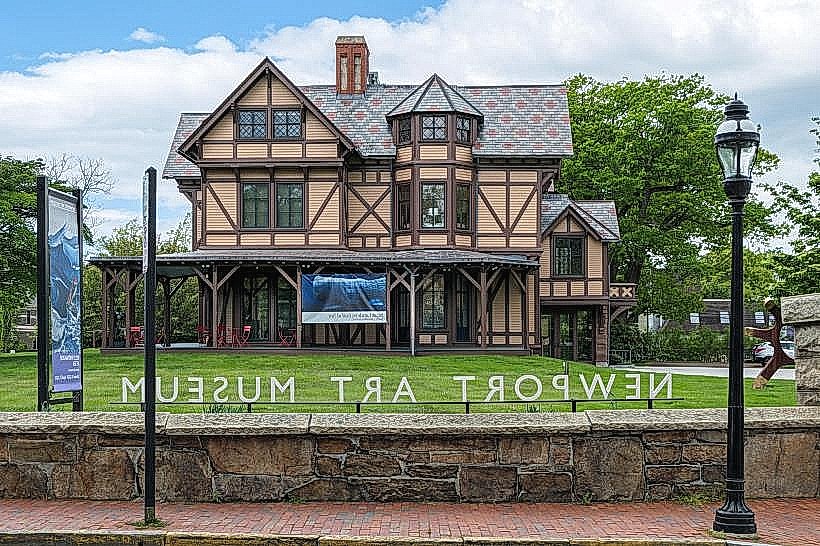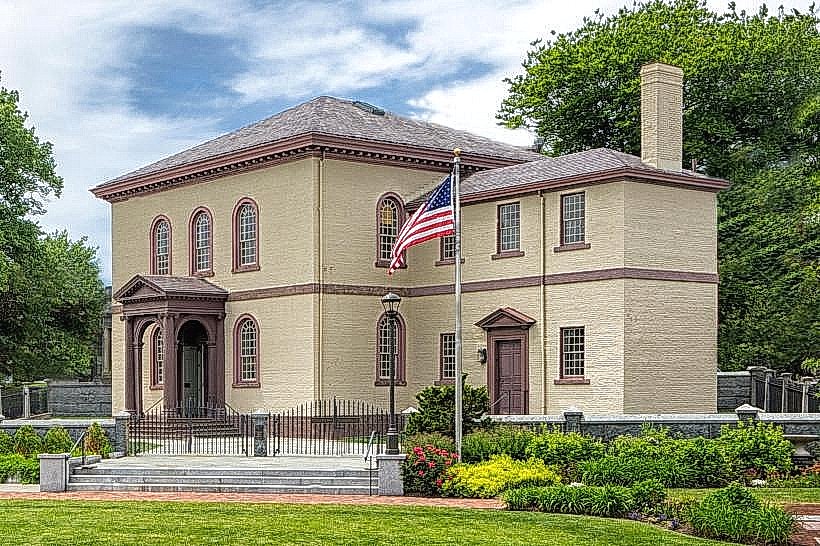Information
Landmark: Chateau-sur-MerCity: Newport RI
Country: USA Rhode Island
Continent: North America
Chateau-sur-Mer, Newport RI, USA Rhode Island, North America
Château-sur-Mer stands as one of Newport’s earliest and most architecturally significant mansions-a bridge between the city’s mid-19th-century mercantile past and its later age of grand social spectacle. Rising amid spreading trees along Bellevue Avenue, the house has a quieter dignity than its flashier successors, its heavy stone façade recalling a time when craftsmanship spoke more softly, but just as eloquently, of wealth and ambition.
Origins and Construction
The estate was built in 1852 for William Shepard Wetmore, a successful China trade merchant whose fortune was made in the Pacific. Designed by Seth C. Bradford, the original house reflected the Italianate villa style popular among prosperous Americans before the Civil War-symmetrical, towered, and built from solid sandstone quarried in nearby Fall River.
Two decades later, Wetmore’s son, George Peabody Wetmore, commissioned architect Richard Morris Hunt to remodel the property completely, transforming it into a High Victorian Gothic château inspired by the grand country houses of Europe. When the renovations were completed in 1870, Château-sur-Mer had become a showplace of Gilded Age luxury, long before the Vanderbilts began building their palaces along the same avenue.
Architecture and Interior Detail
The mansion’s exterior blends Romanesque arches, Gothic tracery, and Italianate brackets, giving it a richly layered silhouette against the sky. Its steep roofs, dormered windows, and carved stone cornices convey both solidity and drama, while the dark slate and sandstone tones lend it a mood of quiet gravitas.
Inside, the transformation under Hunt was extraordinary:
The Great Hall, paneled in carved walnut and capped by an intricate coffered ceiling, was among the first of its kind in Newport-a space meant to awe visitors with its medieval character.
The Dining Room, finished in black walnut with carved griffins and floral motifs, creates an atmosphere of stately warmth.
The Library glows with golden oak and leaded-glass windows, its shelves once filled with volumes on trade, politics, and exploration.
Upstairs, the bedrooms and dressing rooms display fine silk wallpapers, painted ceilings, and imported English furniture chosen by the Wetmores themselves.
Every surface shows the hand of the artisan-from carved balusters to marble mantelpieces-and the craftsmanship reveals a sensibility rooted more in Old World dignity than in the exuberance of the later Gilded Age.
Gardens and Grounds
The estate once covered forty acres, though only a portion remains today. The grounds were laid out by landscape designer Ernest Bowditch, blending open lawns, shaded paths, and specimen trees imported from Europe and Asia. Elm, copper beech, and Japanese maple still lend the property a park-like serenity, while stone walls and an ornamental gate mark the transition from public street to private estate.
In its day, the gardens were a setting for Newport’s earliest outdoor social gatherings-before Marble House and The Breakers existed, the Wetmores’ lawn parties were among the highlights of summer society.
The Wetmore Legacy
George Peabody Wetmore was not only a social figure but also a statesman, serving as Governor of Rhode Island and later as U.S. Senator. His role in national politics and his refinement as a collector made Château-sur-Mer a center of cultured hospitality. Unlike the newer mansions built solely for entertainment, this house remained a true family home, lived in year-round and filled with generations of possessions.
By the early 20th century, as Newport’s fortunes shifted, the estate retained its old-world dignity even as the glitter of newer palaces dimmed. When the last of the Wetmores died in the 1960s, the mansion passed into the care of the Preservation Society of Newport County, ensuring its survival as one of the city’s most historically important residences.
Visitor Experience
Today, Château-sur-Mer offers visitors a glimpse into the evolution of Newport’s architecture-from early merchant prosperity to aristocratic grandeur. Touring its rooms, one notices the scent of aged wood, the filtered light through stained glass, and the hush of thick carpets underfoot. The guides and exhibits trace both the story of the Wetmore family and the emergence of Newport as America’s premier summer colony.
The house feels more intimate than The Breakers or Marble House; it tells its story through craftsmanship and atmosphere rather than opulence. Even the creak of the staircase and the mellow echo of footsteps across parquet floors seem part of the building’s living memory.
Closing Impression
Château-sur-Mer endures as the stately elder among Newport’s mansions-a house that witnessed the city’s transformation from a quiet harbor town into a stage for American high society. Its mellow stone, deep verandas, and shadowed halls speak of endurance, refinement, and the steady confidence of a family whose wealth came not from spectacle but from enterprise. Standing beneath its slate towers at dusk, with the trees whispering in the sea breeze, one feels the quiet power of a bygone age still lingering in the air.


